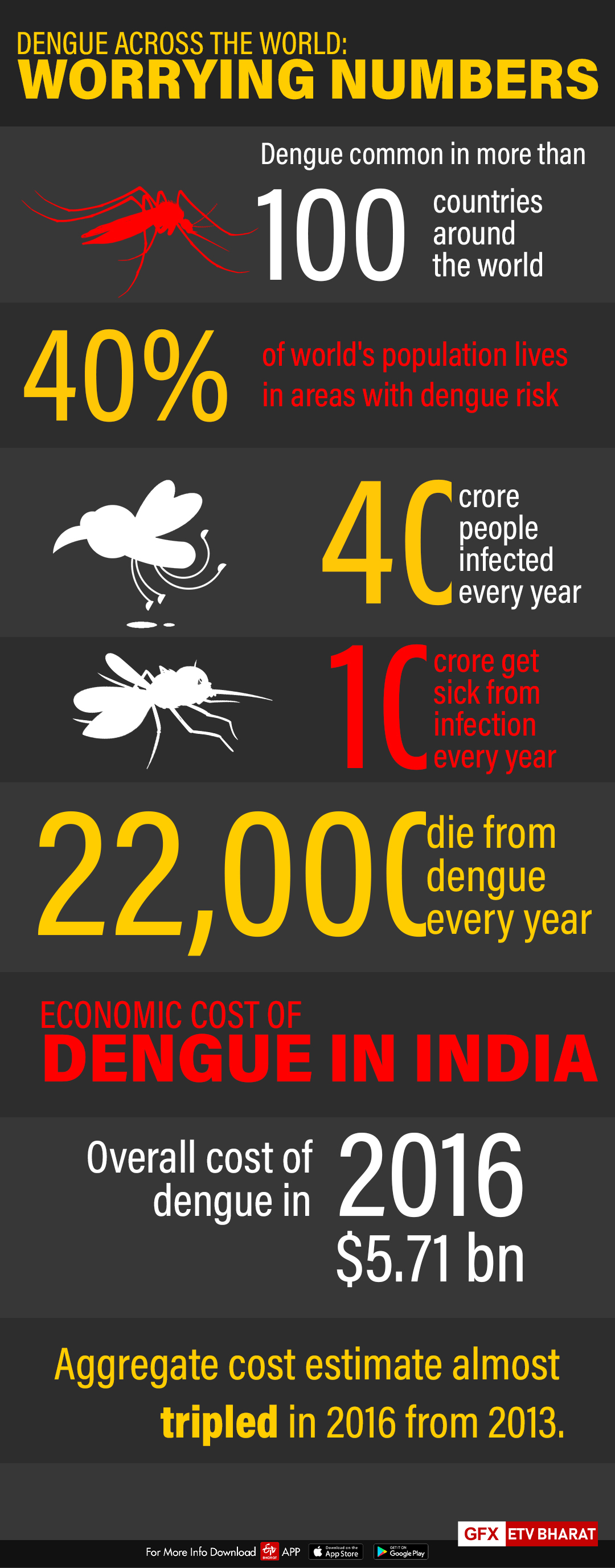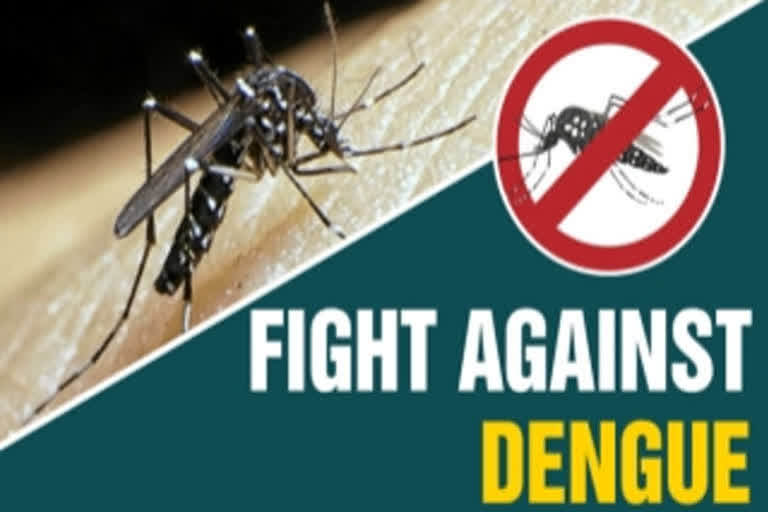Hyderabad: Though almost all of India's healthcare system is currently focussed on tackling the COVID-19 pandemic, the onset of monsoon brings a serious threat of dengue.
While India reported 1,01,192 dengue cases in 2018, the figure rose to 1,36,422 in the first 11 months of 2019. However, this is just the number of reported cases, and if unreported cases are accounted for, the number might be much higher.
Mosquitoes which breed in stagnant water are the main carriers of the disease. With rapid changes in landscapes and urbanisation, these organisms have adapted themselves and are now found in urban homes as well.

Cause of Dengue fever:
The root cause of Dengue is Flavivirus. In this, there are four types – Dengue 1, Dengue 2, Dengue 3, Dengue 4. The fever spreads when female mosquito -- Aedes aegypti bites a person. There is a possibility of one getting Dengue 4 times in a lifetime. If a person gets a fever for a second time due to the other type of virus, it could turn to be very severe.
Transmission of the disease
Dengue is spread through infected Aedes species mosquitoes, the same types of mosquitoes that spread zika and chikungunya viruses. These mosquitoes typically lay eggs near stagnant water in containers that hold water like buckets, bowls, animal dishes, flower pots, and vases.
The mosquitoes become infected when they bite a person infected with the virus. Infected mosquitoes can then spread the virus to other people through bites.
Read: All you need to know about Dengue
A pregnant woman already infected with dengue can pass the virus to her fetus during pregnancy or around the time of birth.
Preventive measure one can take:
- Use mosquito repellents.
- Wear fully covering clothes.
- Use screens on windows and doors. Repair holes in screens to keep mosquitoes outdoors.
- Try to avoid being outside at dawn, dusk, and early evening.
- Stop mosquitoes from laying eggs in or near water.
- Turn buckets, cans over. Store them under shelter to prevent water accumulation.
- Remove excess water from plant pot plates.
- Scrub containers to remove mosquito eggs
- Loosen soil from potted plants to prevent puddles
- Make sure drains are not blocked
- Change the water in flower vases every second day
Read: With all focus on COVID-19, India faces threat of other deadly diseases
Symptoms of dengue:
- Mild:
Mild symptoms of dengue can be confused with other illnesses that cause fever, aches and pains, or a rash. The most common symptom of dengue is fever with any of the following: nausea, vomiting, rashes, aches and pains (eye pain, typically behind the eyes, muscle, joint, or bone pain). Symptoms of dengue typically last 2–7 days. Most people recover after about a week. - Severe:
Severe symptoms of dengue include stomach or belly pain, vomiting (at least 3 times in 24 hours), bleeding from the nose or gums, vomiting blood, or blood in stool, feeling tired, restless, or irritable.
What steps has the government taken?
In 2019, the government of India took quite a few steps to prevent dengue in the country:
- Govt provided technical guidelines for prevention and control, case management and effective community participation to the states for implementation.
- Training for capacity building of doctors on case management.
- Monitoring and supervision for early case detection and prevention and control.
- In 2019, 15 advisories issued and 10 reviews held
- Free diagnostic facilities through 680 Sentinel Surveillance Hospitals (SSHs) and 16 Apex Referral laboratories (ARLs) identified across the country.
- GOI supplied 7958 Dengue kits (1 Kit= 96 tests) through NIV, Pune.
- Observation of National Dengue Day on 16th May across the country.
- Govt carried out focused IEC/BCC activities to sensitise the community on prevention and control of Dengue.



